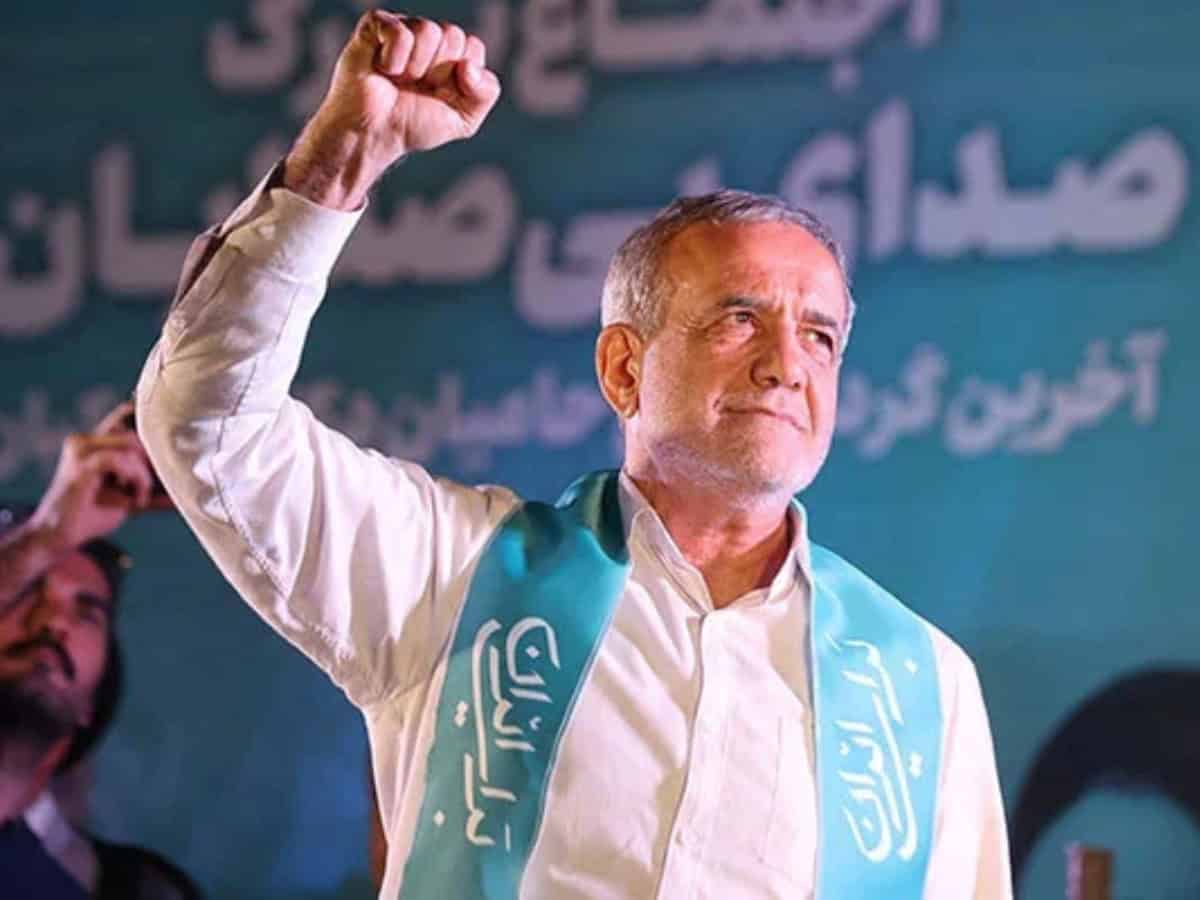
Tehran: Iranian President Masoud Pezeshkian has emphasised the need to strengthen bilateral cooperation with Russia to counter the West’s “cruel” sanctions.
Pezeshkian made the remarks in a meeting with visiting Russian Prime Minister Mikhail Mishustin in Tehran, urging the two sides to accelerate the implementation of joint projects, according to a statement published on Monday on his office’s website.
He added that the exchange of diplomatic delegations between Iran and Russia would help expand bilateral interactions and relations, calling for regional cooperation within the frameworks of international mechanisms, Xinhua news agency reported.
For his part, the Russian Prime Minister expressed his country’s willingness to increase interactions with Iran, especially in energy, industry, transportation, agriculture, health and treatment, and culture.
Mishustin hailed the “very good” growth in bilateral trade exchanges over the past few months, stressing that the two countries still had great capacities for safeguarding mutual interests.
He highlighted the necessity to promote cooperation between Russia and Iran, inviting the Iranian President to attend the upcoming BRICS summit in Russia and sign “the Moscow-Tehran comprehensive strategic agreement”.
In a related development, First Vice President Mohammad-Reza Aref underscored the Iranian government’s commitment to strengthening ties with Moscow. He condemned recent actions by the Israeli regime in Gaza and Lebanon and praised Russia’s constructive role in international forums, particularly the United Nations Security Council, where its influence could help mitigate violence against innocent civilians.
Aref reiterated the importance of swiftly operationalising signed memorandums of cooperation and enhancing collaboration in all sectors to better resist sanctions from the US and its allies. He emphasised the need for a robust dialogue on critical regional issues, such as the Zangezur corridor and the North-South corridor, cautioning that any shifts in regional geopolitics could lead to tensions exploited by outside actors.
The First Vice President also highlighted ongoing infrastructure projects, including the completion of the Sirik power plant and the Bushehr nuclear power plant’s second and third units, underlining the significance of a $1.2 billion financing agreement for these endeavours. He called for increased multilateral cooperation with countries like China and participation in regional organisations to bolster both Iranian and Russian interests.
With current trade volumes between Iran and Russia reaching $2.5 billion, Aref expressed optimism that further efforts could elevate this figure to reflect the potential both countries possess. He reiterated that strengthening regional mechanisms like BRICS, Shanghai Cooperation Organisation, and the Eurasian Union would be advantageous for both nations.
Finally, Mishustin and Aref agreed on the necessity of finalising a comprehensive cooperation agreement, which they believe could serve as a cornerstone for future collaboration. Aref expressed gratitude for Russia’s support of Iran’s membership in the Eurasian Union and hoped that necessary arrangements would be made during the upcoming summit in Armenia.
As both officials wrapped up their discussions, Mishustin emphasised the historical foundations of Iran-Russia relations, rooted in friendship and good neighbourliness, and expressed a strong desire to elevate bilateral cooperation to new heights, reflecting the aspirations of both nations’ leadership.
